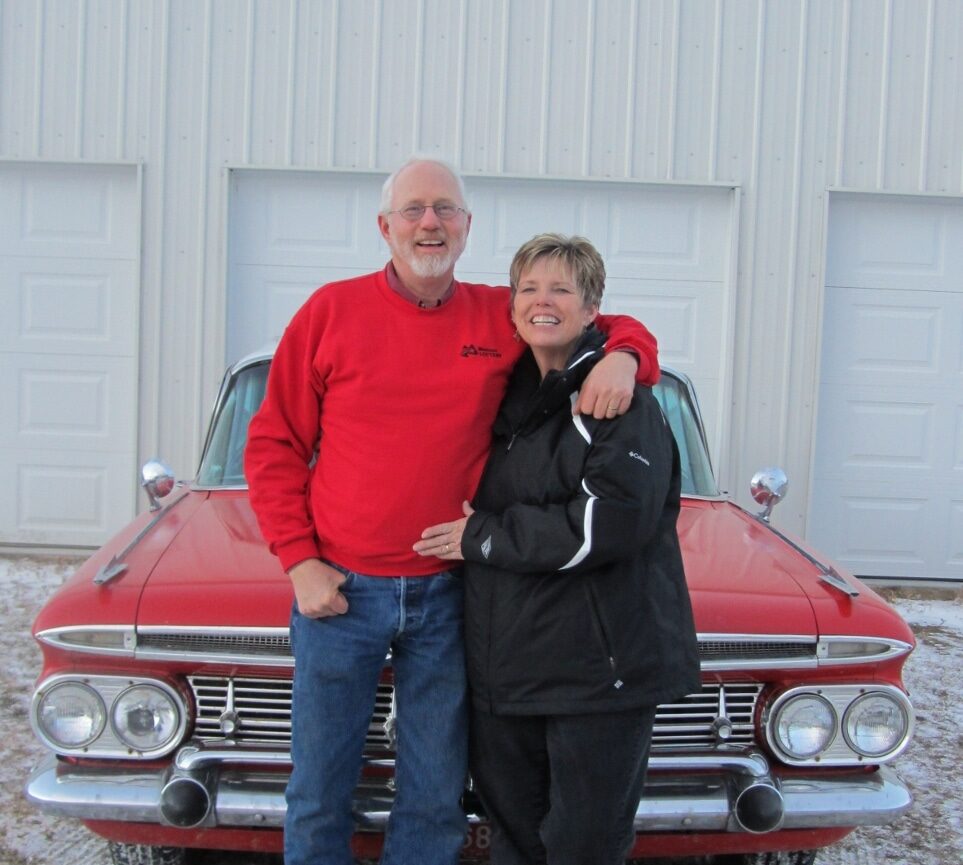Great Falls, MT – Max Cederberg of Turner, MT is completing his time with the Montana Wheat & Barley Committee (MWBC) following six years of service, but he’s also retiring from farming. “What a life it has been!” Cederberg said.
“We will certainly miss Max,” said Kent Kupfner, MWBC executive director. “As vice chair, he has played an integral role with MWBC especially during our grant selection process. We are so grateful for his contribution of time to the efforts of the organization on behalf of Montana growers. Now he might have some time to work on his true passion, his love of rebuilding classic cars.”
Governor Steve Bullock appointed Cederberg to the Committee in 2019. “It has been an honor to represent District 2 up here in Turner,” Cederberg said. “Montana’s grain industry is vital to our local economy and it’s been a great experience being able to represent our conventional and organic farming communities of Montana.”
Max and his wife Kirsti farm just north of Turner where he has been a key part of the MSU research community for more than 40 years. “We started farming in 1980 south of Malta,” said Cederberg. “In 1987 we moved to Turner and have raised winter wheat, barley, camelina, mustard and lentils. But in 2010 we added organic farming to the mix, and by 2020 we converted entirely to organic,” said Cederberg. “It has been a rewarding experience, particularly as we have found new markets seeking a different wheat resource from conventional growing methods. I have very much enjoyed expanding my agronomy skills, because you need to be on your toes to remain viable in organic agriculture.”
Led by Peggy Lamb, research scientist at the Northern Ag Research Center (NARC), MSU has conducted research trials and annual farm field tours on Cederberg’s farm where over the years they have generated varietal production data for cereal fertility, spring wheat, durum, spring barley, pea and winter wheat. Darrin Boss, associate director for the Montana Agriculture Experiment Stations and superintendent of NARC, has noticed remarkable changes in varieties over the years. “Wheat hardiness, yield and protein stability have improved dramatically thanks to growers like Max who dedicate a portion of their ground for our plots,” Boss said. “Max’s place is about as far north as you can get in Montana and it’s beautiful country for wheat. Those plots have helped MSU plant breeders develop new varieties that work best for our tough northern country.”
Boss said that the Cederberg farm has served as an excellent off-station research location beginning with Leon and Nellie Cederberg in 1982, then continuing with Max and Kirsti in 1996. “They always embody the spirit of generous Montanans who ensure our farmers will continue to raise the best crops despite the challenges they face,” he added.
During his tenure, Cederberg traveled to meetings including the Wheat Quality Council, US Wheat Associates and the Wheat Marketing Center, among others. As a board member, he has participated in the national and international wheat marketing conversation and enjoyed the grant selection process each fall. “There are so many different ideas that arrive from our scientists applying for grant awards,” he said. “I truly hope we never run out of those bright, eager minds.”
###
MWBC


